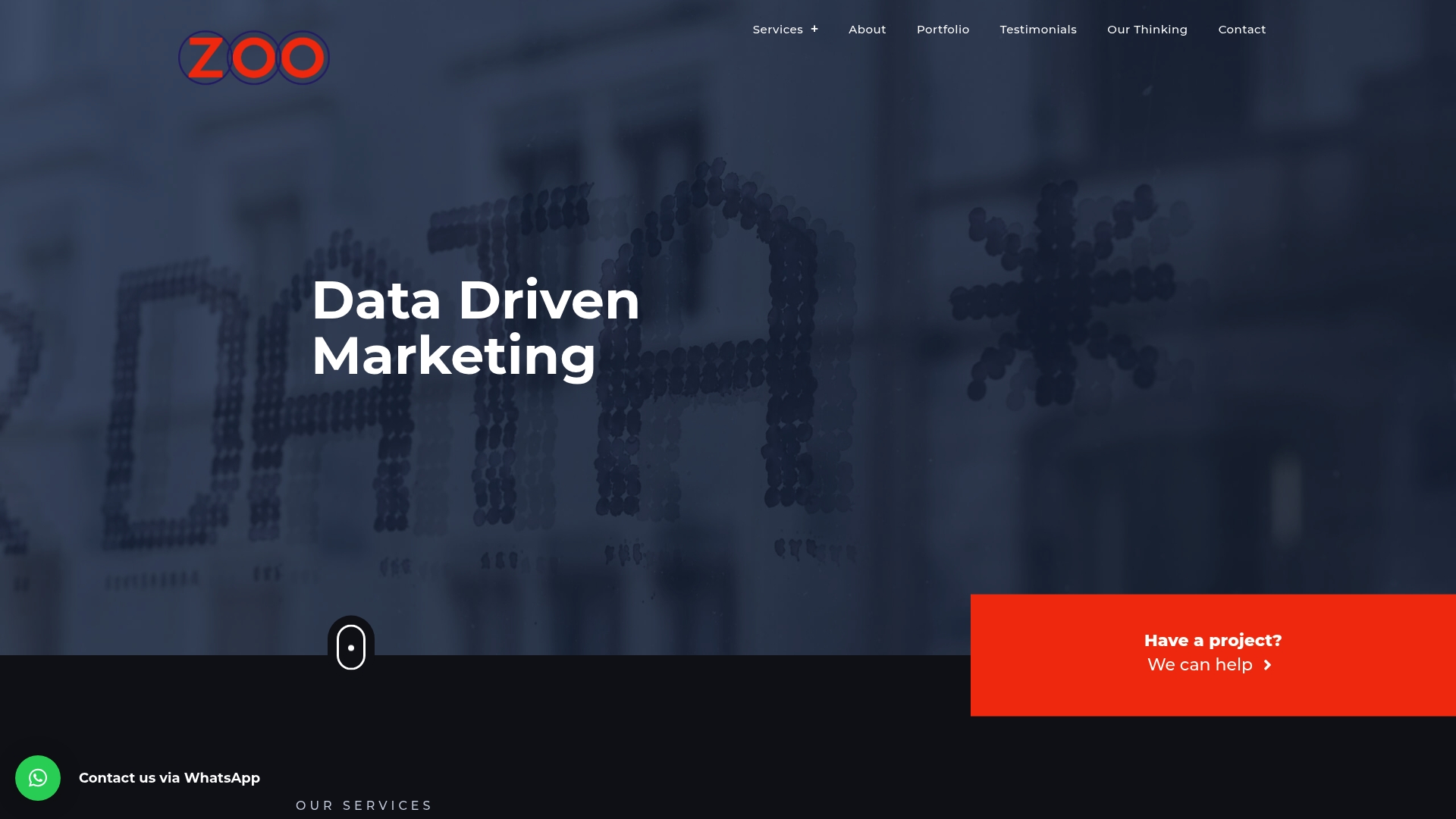Businesses that use marketing automation see a 14 percent boost in sales productivity, according to recent reports. With competition on every corner, small and midsize companies need smarter ways to connect with customers and make the most of limited time and staff. Understanding the basics of marketing automation unlocks better communication, improves efficiency, and helps deliver the personalized experience today’s buyers expect.
Key Takeaways
| Point | Details |
|---|---|
| Efficiency Gains | Marketing automation reduces manual tasks, allowing businesses to focus on strategic activities. |
| Targeted Engagement | Automated tools enable personalized customer interactions, enhancing overall marketing effectiveness. |
| Integration Benefits | By connecting multiple digital channels, automation creates cohesive and responsive marketing ecosystems. |
| Challenges Awareness | Businesses must address common pitfalls such as undefined goals and technical integration to maximize automation benefits. |
Table of Contents
- Understanding Marketing Automation Basics
- Major Types of Marketing Automation Tools
- How Marketing Automation Platforms Work
- Benefits For Small And Growing Businesses
- Common Challenges And Pitfalls To Avoid
Understanding Marketing Automation Basics
Marketing automation is a powerful technology that transforms how businesses approach digital marketing and sales processes. According to research, marketing automation platforms enable organisations to streamline complex marketing workflows by automating repetitive tasks and creating more personalised customer experiences.
At its core, marketing automation helps businesses achieve several critical objectives:
- Improve efficiency by reducing manual marketing tasks
- Create targeted, personalised communication strategies
- Track and analyse customer interactions across multiple channels
- Align marketing and sales team efforts seamlessly
The fundamental mechanism works by connecting various digital touchpoints like websites, email campaigns, social media, and customer relationship management (CRM) systems. This integrated approach allows businesses to automatically trigger specific actions based on customer behaviour. For instance, when a potential customer downloads a resource from your website, the system can instantly send a follow-up email, schedule a sales call, or segment them into a specific marketing nurture pathway.
For small businesses looking to understand more about related marketing concepts, read our guide on marketing funnels which complements marketing automation strategies. By implementing these technologies strategically, businesses can create more intelligent, responsive marketing ecosystems that adapt to individual customer journeys and preferences.
Major Types of Marketing Automation Tools
Marketing automation tools come in diverse categories, each designed to address specific business needs and marketing challenges. According to Salesforce research, these solutions range from B2B and B2C platforms to specialized tools for small businesses, mobile marketing, and AI-driven customer relationship management.
The primary types of marketing automation tools include:
- Email Marketing Automation: Tools that schedule, personalize, and track email campaigns automatically
- Social Media Automation: Platforms that manage posting, engagement, and content scheduling across multiple social channels
- Omnichannel Automation: Systems that create unified messaging experiences across different communication platforms
- Content Marketing Automation: Solutions that help plan, create, and distribute content strategically
- Web Personalization Automation: Technologies that dynamically adjust website content based on user behavior
As TechTarget research indicates, these tools share a common goal: enabling businesses to deliver timely, personalized messaging with minimal manual intervention. The key differentiator lies in their specific features and target market segment.

For small businesses looking to dive deeper into analytics and implementation strategies, learn more about marketing analytics for your business. By understanding these automation tool types, businesses can select solutions that precisely match their marketing objectives and operational requirements.
Here’s a comparison of major marketing automation tool types and their main focuses:

| Tool Type | Main Purpose | Typical Use Case |
|---|---|---|
| Email Marketing Automation | Schedule & personalise emails | Automated follow-ups, newsletters |
| Social Media Automation | Manage & schedule social posts | Multi-channel posting, engagement |
| Omnichannel Automation | Unified messaging across platforms | Cross-channel brand experience |
| Content Marketing Automation | Plan/create/distribute content | Editorial calendar, content workflow |
| Web Personalisation Automation | Customise website for users | Dynamic content, real-time offers |
How Marketing Automation Platforms Work
Marketing automation platforms operate as sophisticated digital ecosystems that transform how businesses interact with potential customers. According to Wikipedia research, these platforms integrate multiple marketing channels and technologies to create intelligent, responsive engagement strategies.
The core workflow of marketing automation typically follows these key stages:
- Lead Capture: Collecting initial customer information through forms, website interactions, or digital touchpoints
- Profile Enrichment: Continuously updating customer profiles with interaction data and behavioral insights
- Lead Scoring: Automatically ranking and prioritizing potential customers based on their engagement levels
- Targeted Engagement: Triggering personalized communication based on specific customer actions and characteristics
As research indicates, these platforms analyze campaigns and customer data comprehensively, organizing information to create seamless workflows across content management, landing pages, email marketing, and analytics. The magic happens when the platform can automatically segment customers, predict their needs, and deliver precisely timed, relevant content.
For small businesses seeking to understand the nuanced world of digital marketing terminology, explore our comprehensive marketing terms guide. By mastering how these platforms work, businesses can transform their marketing from reactive guesswork to proactive, data-driven strategies that genuinely connect with their target audience.
Benefits for Small and Growing Businesses
Marketing automation offers small and growing businesses a powerful toolkit for competing effectively in a digital marketplace. According to research from Paystone, these platforms provide critical advantages by saving time and dramatically improving operational efficiency.
Key benefits for small businesses include:
- Time Savings: Automating routine marketing tasks like social media posting, email campaigns, and customer review requests
- Cost Reduction: Minimizing manual labor and consolidating multiple marketing tools into a single platform
- Enhanced Targeting: Creating more precise, behavior-based customer engagement strategies
- Increased Conversion Rates: Enabling rapid, personalized responses to potential customer interactions
- Scalable Marketing: Allowing businesses to achieve sophisticated marketing approaches with limited resources
According to Cumberland College research, these platforms are particularly transformative for businesses with constrained budgets. They enable companies to achieve more sophisticated marketing strategies without requiring extensive teams or substantial financial investments.
For entrepreneurs looking to build a comprehensive marketing approach, explore our guide on creating a marketing strategy that integrates automation technologies. By strategically implementing these tools, small businesses can level the playing field, delivering professional-grade marketing experiences that rival larger competitors.
Common Challenges and Pitfalls to Avoid
Marketing automation sounds straightforward, but businesses often encounter significant challenges during implementation. According to TechTarget research, the primary obstacles stem from unclear strategic objectives and insufficient technical integration.
Key challenges small businesses typically face include:
- Undefined Goals: Failing to specify precise automation targets and desired outcomes
- Technical Integration Issues: Struggling with system compatibility and data synchronization
- Insufficient Staff Training: Not adequately preparing teams to use automation platforms effectively
- Complexity Management: Overcomplicating automated workflows and losing human touch
- Data Accuracy Concerns: Relying on unvalidated or poorly configured automated metrics
As CMSwire research highlights, another critical pitfall is losing brand authenticity through generic, impersonal automated messaging. Businesses must continuously monitor and customize their automation strategies to maintain genuine customer engagement and prevent communications from feeling robotic or disconnected.
For small businesses seeking to build robust digital marketing foundations, explore our beginner’s digital marketing guide to understand how to navigate these challenges effectively. Successful marketing automation requires a delicate balance between technological efficiency and human creativity.
Ready to Break Free from Marketing Overwhelm?
If setting up automation feels overwhelming or you find your current systems falling short, you are not alone. Many businesses struggle to connect tracking, digital ads, and CRM workflows into one seamless experience. Your dreams of a truly data driven marketing machine are often derailed by technical integration issues and unclear automation strategies. Discover how our experts at Zoo Digital can help you unlock the full power of automation. Visit our Uncategorized Archives to see more guides and solutions for marketers.

Why settle for guesswork when you could have conversion focused tracking, expertly managed Google and Meta Ads, and Hubspot CRM automation tailored for your business? If you want to see measurable results faster, there is no better time to act. Head over to Zoo Digital now to get started on smarter marketing automation that fits your goals. Make your next campaign your most effective one yet.
Frequently Asked Questions
What is marketing automation?
Marketing automation is a technology that streamlines marketing workflows by automating repetitive tasks, creating personalized customer experiences, and integrating various digital channels for more efficient marketing strategies.
How do marketing automation platforms work?
Marketing automation platforms collect customer information, enrich profiles, score leads based on engagement, and trigger personalized communication based on specific customer actions and behaviors.
What types of marketing automation tools are available?
Types of marketing automation tools include email marketing automation, social media automation, omnichannel automation, content marketing automation, and web personalization automation, each addressing different marketing needs and challenges.
What are the benefits of marketing automation for small businesses?
Key benefits of marketing automation for small businesses include time savings, cost reduction, enhanced targeting, increased conversion rates, and scalable marketing that allows for sophisticated strategies without extensive resources.

